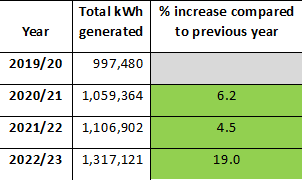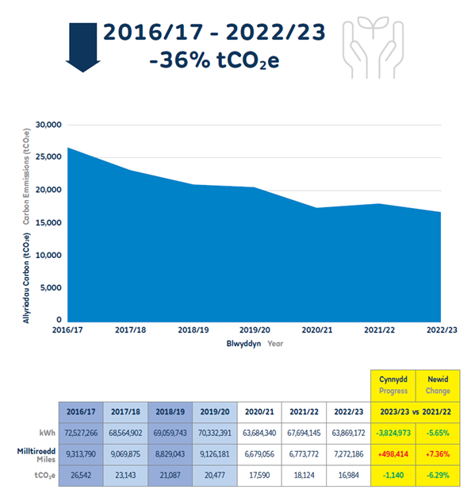Latest News
Page updated: 20/11/2023
 Do you wish your team could spend more time with your clients or on creative, innovative tasks ?
Do you wish your team could spend more time with your clients or on creative, innovative tasks ?- Are monotonous repetitive tasks taking up your skilled workers time?
If so read on to find out how the Debtors team have transformed their ways of working saving time and reducing the need for skilled staff to undertake monotonous tasks.
The problem #1
The council issues over 50 thousand invoices a year for over £80 million of income. Due to the high number of low level debts with only 4.5 FTE the team has been struggling to
actively recover smaller outstanding sums. Recruiting more officers wasn’t an option – they needed to transform their ways of working, to think and work differently to create more capacity.
Starting with the customer
The team identified a cohort of customers where there was a high volume of low value invoices. They took time to focus on their customers to understand the barriers to payment – They found often it’s not that people don’t want to pay but that they find the process hard or confusing or that they forget, this is particularly important for some of our older customers who struggle with or don’t want to use online solutions.
The solution #1
Move customers to Direct debit – Set up the payment once – Send 1 invoice a year instead of 12 and advise them when the payment will be taken each month without the customer having to remember and take action to pay.
The problem #2
The solution to problem #1 created even more manual processing work. The process to create a Direct Debit for a Delta Wellbeing life line customer required the involvement of Delta Engineers, Delta business support and the Debtors team to take information from customer visits and calls, forms, emails and spreadsheets before inputting into the Unit 4 Agresso system to generate invoices, direct debit mandates and payments. The information is all needed but the processes were laborious and time consuming often taking several days from the initial visit with the customer to the completion of the DD.
The solution #2
working with the Digital Solutions team. The process was mapped and understood and streamlined. A new digital form was created and a new digital team member the Debtors Bot was introduced.
Now the Engineer visits the customer takes all relevant information in the first visit inputs this into the digital form whilst still with the customer. Within 5 minutes the Bot has picked up and read the form, checked Agresso for the customer, set up a new customer if needed, set up the Direct debit on the System and generated the invoice. The customer frustration is gone, the repetitive inputting of information is handled robotically, and the Delta and Debtors team have more capacity to undertake other work.
Within the debtors team alone this has saved 450hours of work a year which can now be focused on value adding income collection activities. The cost of the digital team member is £2000 per year in comparison to paying and additional staff member to do this work at a cost of £7000.
What’s even better – the digital worker can be trained to do more than 1 task and can operate 24 hours a day so has the potential to remove 8760 hours of work from the current work load providing the equivalent of 4 extra Staff which would have cost the department £123,000 a year.
 Do you wish your team could spend more time with your clients or on creative, innovative tasks ?
Do you wish your team could spend more time with your clients or on creative, innovative tasks ?- Are monotonous repetitive tasks taking up your skilled workers time?
Don’t struggle on – explore the support a Digital team member can offer to you. Contact Mark Howard -Senior Transformation and Change officer on Teams.
What we know
The Transformation review of agency use in schools highlighted
• There is no direct link between school size and agency spend or staff absence rates and agency spend.
• There are direct links between the level of expenditure in a school and the management practices around cover and supply.
• Income from Insurance and other cover claims no longer covers the cost of agency staff replacement
• Supply staff wages are set for all agencies on the framework however the fees they charge vary from £22 to £72 per day.
Matching the approach with the need
• There are 3 common areas of use for agency supply
Adhoc Daily Cover – short term sickness, courses, meetings, events, trips, exams, unpaid time off.
Cover for Vacant posts or Long term absences – Sickness/ Maternity
Additionality – extra staff linked to RRRS, ALN support, Grants, Interventions, Wellbeing.
• Schools who understand in detail the cover need and apply different approaches to the need demonstrate greater financial efficiency whilst still meeting student needs.
Good Practice
Schools with low agency spend:
• Control the level of need through planning – long term, medium term and short term – they are also prepared to make changes and say no
• Use strong internal cover systems, such as equitable load distribution, collapsing classes, employing cover supervisors/supernumerary TA’s and upskilling/ uplifting experienced TA’s to cover.
• Keep records and review regularly to understand needs and ensure the most appropriate solution is still in place
• View cover as a precious and expensive resource and ensure there is leadership oversight of decision making regarding its procurement.
• View agency as a last resort not the approach of choice.
• Negotiate agency fees and long term booking discounts when Agency is the most cost efficient solution.
Central support
We can offer
• Support and advice for schools on contract negotiation with Agencies
• Support and advice for schools on appropriate short term employment contracts
• Support to manage staff wellbeing and absence.
Reach out – the transformation team is available to offer support to schools in changing their approach. SaClarke@Carmarthenshire.gov.uk
Managing Agency Expenditure Toolkit
• The guidance document and self-evaluation toolkit can be used to identify strengths and areas for potential change of approach. The study discussions highlighted that whilst all schools accepted that some level of cover for absences was necessary the profile of cover within the school and the way in which agency supply procurement is managed by schools can and does have a significant influence on the overall expenditure seen. It is recommended that schools use the attached guidance and toolkit to better understand how supply and cover is being managed in school and to ensure value for money is being achieved in relation to cover. The full project report is also available on request for those interested.

Project Overview
The Workforce Resourcing Team (WRT) pilot project was launched in May 2024 within the Llanelli area, covering four Residential Care Homes and one learning disability Respite Home. Historically, each establishment managed their own small casual pool of staff who worked almost exclusively in one care home and supplemented this with agency workers.
The WRT pilot has centralised these teams and sought to provide a regional cover solution. At the start of the project the WRT had 12 active staff less than 50% of whom worked in more than one establishment after 7 months this had grown to 34 active staff 83% of whom are working in multiple establishments
Performance and Benefits
The benefits for the establishments
• Increased efficiency with staff having greater knowledge of each homes processes and procedures
• Improved quality and consistency of work from the staff covering shifts
• Positive impact on residents with reports of increased satisfaction in care and wellbeing
• More effective rota management
• Greater team cohesion
• Reduction in fees paid to external agency’s
Recent Mangers feedback demonstrates the service quality benefits are clearly recognisable.
‘WRT casual care workers are flexible, cost-effective workforce that is transforming the way care is delivered across the authority.’
‘The Work Resource Team has been an invaluable asset to our service. We have successfully transitioned away from using agency staff and now benefit from a consistent team of well trained personnel who are familiar with the individuals we support’
‘In fairness the service has relieved a lot of pressure on the home, and it’s reassuring to have our own trained “in-house” staff, consistency is key for the residents.’
‘We have had very little WRT experience to date but are excited about the future roll out, it will help with recruitment and retention of staff, continuity of care and a better skilled workforce (than agency) .
The benefits for staff
• Staff feel valued
• Staff who have transferred from the agency like being part of CCC and not an outside agency
• Staff appreciate being able to do more, due to training and greater knowledge of the sites
• Existing CCC Staff have enjoyed being able to pick up more shifts and having the opportunity to work across services
• Existing CCC staff feel better supported in their role with confidence their will be staff they can rely on available when demand rises reducing the risk of burnout and work place stress.
Team Member Alison’s feedback
 'Since joining WRT last May I feel that I have gained confidence in my ability to deliver the best quality care. The WRT management help and support me with any questions or concerns that I may have. Whilst being with WRT I have shown my experience from working in care previously and I have also gained new knowledge and skills to provide the best care possible to all residents that I assist.'
'Since joining WRT last May I feel that I have gained confidence in my ability to deliver the best quality care. The WRT management help and support me with any questions or concerns that I may have. Whilst being with WRT I have shown my experience from working in care previously and I have also gained new knowledge and skills to provide the best care possible to all residents that I assist.'
Cost Savings
The project has successfully reduced agency usage. The WRT has steadily increased its ability to support the needs of the establishments resulting in 74% of cover (over 2000 hours) being supplied by the WRT by December 24. For every hour covered by the WRT there is a saving of £3 against the cost of agency staff filling the shift. In December 2024 this equated to a saving of over £6000

Interested in joining the team?
If you are interested in joining the WRT in addition to your existing role or know someone who would like to join the team please apply for one of our Casual Care worker positions via the councils Jobs and Careers page
Potential for Expansion
Given the success of the pilot project this is now being rolled out to other areas of Adult Social care. There is a strong potential for this approach to be rolled out to other areas of the business seeking sustainable solutions to workforce challenges.
If you would like to explore whether this model or approach could be developed to support your team or service please contact Linda Thomas in the Transformation Team or you can contact the Transformation team via our webform
The Homecare Team have undertaken two projects during 2023. The first reviewed entailed a move away from paper timesheets, and migration of over 300 staff on to the Councils Resource Link system. The second saw the removal of hard copy Service User files held centrally in Spilman street, to Service User records that are now electronically stored on the Councils Eclipse system.
Who are the Homecare Team?
We are a team of registered Social care professionals responsible for providing care and support to citizens of Carmarthenshire enabling them to live in their own homes as independently as possible. The team includes over 300 carers working across the entire county. The carers are supported by a team of Senior Cares, Supervisors and 2 Registered Managers. We support circa 320 Carmarthenshire citizens. We also provide key short term preventative services in the form of a Reablement team, and a Home Based Care Team both of which key pillars of an award winning Intermediate Care. The Homecare team’s workload is managed by an electronic call monitoring and scheduling system called CM2000. This allocates the calls to each carer, and monitors each visit in real time so the service ensures that every service user has had the care they need, at the right time, and by a carer they know.
What were the issues?
1. Overly bureaucratic Payroll systems with duplication of effort.
2. Heavy reliance on paper based systems.
3. Delays in carers receiving overtime payments
4. High printing, stationery and postage costs
5. Difficulty in tracking annual leave
6. Hard copy Homecare Service User files kept in central location in Spilman Street office.
7. Storage space at a premium
8. Requirement to hold records for six years resulted in time consuming archiving of hundreds of case notes.
Paper timesheets.
Despite the use of an electronic call monitoring system there remained some cumbersome processes around how each carer was paid. Each week over 300 carers were required to complete, and post in, a paper timesheet, which detailed the calls they had undertaken, and the time they spent travelling between calls. A separate claim paper form had to be submitted for carers to claim their milage. Once received back by the service each paper timesheet was scrutinised by a supervisor, and again in monthly meetings with Payroll where the timesheets were then entered into the payroll system.
This labour intensive process saw delays on carers receiving payment for any additional hours they may have worked and often times paper timesheets were lost or delayed in the post. A round of postal strikes meant that the service had to put in place systems to physically collect and hand deliver timesheets for a number of months.
The reliance on paper based systems incurred printing and postage costs, the team consumed over 300 paper timesheets each week (circa 16,000pa), print and reprographic costs were high.
Holding hard copy files
A full copy of each Service Users Homecare plans, and assessments must be available both in the Service Users home and in the Homecare head office (3, Spilman St). Storing these notes in the office required a room full of filing cabinets. Updating information or finding information required staff members to attend the office and to produce 2 copies of all documentation one for the office file and one for the Service Users home.
The Service is required to retain all records for six years. Each persons file would hold up to two years of information, while older records were boxed, labelled and sent for archiving. This meant that the service were constantly visiting files to remove old records for archiving.
Similarly, if there was ever a need to produce records, for example in response toe a subject access enquiry, or to respond to a complaint, the service had to request the archived files, and return to archive.
This process was inefficient and costly.
What have they done?
The Homecare management team have used vanguard based methods to review and analyse their systems. This enabled them to identify changes which would support the increased efficiency of their processes.
Working in collaboration with payroll, carers and Trade Union colleagues they have implemented a change to the payroll process which moved staff from manually detailing on paper all activities within their day to reporting only the exceptions ie hours over the standard working day, and milage claims, electronically via the existing ResourceLink system.
This reduced the time taken for staff to complete the timesheet, reduced the amount of checking required by managers, stopped pieces of paper from being moved around the county and eliminated the need for payroll to manually input the provided information.
Utilising the existing Resource Link system meant the team could implement the changes at zero net costs and ensures staff can take ownership for their timesheets, milage claims and annual leave and have access to a clear claim history.
The team have also utilised the existing eclipse system, working with the developers to create a dedicated area on the system for Homecare files to enable all the Service Users records to be stored electronically eliminating the need to duplicate paper records and increasing the efficiency with which records can be viewed and stored.
The Homecare business support team were instrumental to the implementation of both improvement projects. They worked with Payroll colleagues to ensure that carers were properly set up on Resource Link, worked with Homecare managers to develop a training manual for carers, and took responsibility for the scanning of records saving the cost of having an outside company undertake the work and completed the work.
A recent CIW inspection has highlighted this as excellent practice, and the team is looking to continue its digital journey with the digitisation of staff files in 2024.
Results:
Costs saved and avoided:
• Staff time
• Printing costs
• Travel expenses
• Postage costs
• Stationery Costs
• Reprographic costs
Improved Staff Experience
Improved Business Controls
Staff feel the new process offers increased equity with other care colleagues and they feel valued and respected.
Staff View:
‘Staff were worried about the changes, but they love it now and wouldn’t go back to paper.’, Senior Manager Home Care
This is what some staff had to say about the changes,
‘although I have only been using resource link a short while, the positives for me is the increased control I have over my overtime hours, the system allows me to go back and make sure my hours have been inputted accurately through the summary outline, it also gives me full control of my annual leave, with a press of a button I can see what I have taken and what is left remaining instead of making phone calls to supervisors and then waiting for someone to get back to you. I find the system user friendly and easy to navigate.’
‘As an older member of the homecare team, we don't particularly look forward to change but with the support from yourselves and my Supervisor it has been a relatively easy process. Of course, I have made phone calls to clarify things, making sure I was inputting the correct details. As for negatives I don't really have any.’
Conclusion:
Any department currently using hard copy systems should contact the Digital and Customers transformation workstream and explore the options available for digitising systems.
A Garden waste service and Debtors team collaboration, reduces customer frustration and saves time and money with a hybrid mail solution.
Working together, the Waste operations and Debtors teams have used Hybrid Mail to reduce costs and regain 6 working days in the process of issuing Invoices and Information about the annual Garden waste service. Read their story and find out how the councils hybrid mail partner can support your department whether you are sending a single letter or a large mailing.
What is the Garden Waste Service?
The Garden Waste service is managed by the Waste operations team and operates from March to October each year collecting customers green waste and recycling it into compost. The service is an annual service which must be paid for each year by the service user to secure a place on the delivery rounds. New customers can pay using an online link to ‘book’ their service. For existing customers an invoice is raised by the debtors team for the service user to pay to recommence their service. The Waste operations team contacts all customers to advise of their collection days and weeks. These communication’s can be electronic or paper based dependant on the customers preference.
What was the Issue?
Of the 11,000 garden waste customers approximately 2000 have requested paper communications, this required the each team to produce 9000 email communications with either an invoice or a schedule and to produce, fold, envelope, frank and post a further 2000 documents each. The process of creating the paper versions took 3 people from each team over a day to do resulting in 6 working days lost to filling and sending envelopes
Following the release of the Garden waste schedules and Invoices in 2023 the contact centre, cashiers team and debtors team saw a significant rise in calls from confused or annoyed customers who had only received one or the other of their documents either electronically or via post and were struggling to get their service restarted. The cause of these complaints was found to be the timing differences between the issuing of the two documents by the two services and the failure of some items electronic and posted to arrive at all.
What have they done?
Utilising the skills of the Marketing and Media team and working collaboratively the two teams have taken advantage of the corporate Electronic and Hybrid mail solutions, Gov.Delivery and DSI. The services arranged for a joint communication to be developed which included the schedules and information for the Garden waste service and the invoice and payment details in one communication. The electronic versions were then sent via the council Gov.delivery contract and electronic copies of the paper versions were produced and uploaded to DSI who then collated the two sets of documents into a single postage item for each customer and posted them.
Results:
- Improved experience for customers
- Significant reduction in the number of calls to the call centre and cashiers
- Cost Saving £1664 on postage costs, envelopes, paper and printing
- Time Saving 6 working days
- Elimination of a mundane and labour-intensive task.
Time saved and costs trimmed by the Local Taxation Team.
The forward-thinking Local Taxation Team implements ‘Hybrid Mail’ to deliver reduced costs, improved efficiency and the elimination of a very dull task.
Who are the Local Taxation Team?
The Local Taxation team is responsible for the maintenance and administration of Council Tax and Business Rates accounts and the billing and collection of charges due. Their main purpose is to maintain and amend Council/Rate Taxpayers’ accounts because of changes in ownership, the awarding or withdrawing of discounts and reliefs, and any other relevant changes in circumstances and to deal with customer enquiries. They also provide advice and clarification on, liability, charges, entitlement to reliefs and related issues.
What was the issue?
The section sends out a lot of pieces of mail, sometimes thousands of letters at a time. Each of these must be addressed correctly, printed, collated, folded, packed into envelopes, franked and posted. In a year the section sends around 50,000 pieces of mail.
They sometimes need to add in leaflets, or sort through reminders to remove those being sent to Council clients, which needs to be done manually. This is time consuming, dull work, prone to human error.
There is a packing machine to help with the task, but its old and unreliable and needs to be replaced as it is prone to jamming and jams mean that the whole run needs to be repeated.
It takes a team of 25 to 30 people to pack between 5,000 and 8,000 letters in a day.
What have they done?
They have used a hybrid mail tool called GovMail. This system enables to complete a letter template and perform a mail merge in the normal manner to produce a mailshot. Instead of sending the job to print, it is sent to ‘GovMail’, which appears as another printer on the list. That is the last time they need to be involved with the mailshot.
Its then sent to a company that prints, packs, and posts the item of mail for them. As it is automated the system can be set to remove items being sent specific names or addresses, specific leaflets can be added at this point too. All at a cost of 45p a letter as opposed to the 75p a letter for 2nd class postage, it is as simple as that.
Results:
Costs saved and avoided:
Cheaper postage costs.
No need to replace packing machine.
Staff time.
No human errors.
Elimination of a mundane and labour-intensive task.
Find out more:
If you are still printing and posting your own mail whether it’s a single letter a week or a massive mail out there is a Hybrid mail solution for you. To find out how easy it is to move to this time and money saving solution contact Mark Howard, Senior Transformation and Change Officer for a demonstration or you can contact the Transformation team via our webform to let us know where you think hybrid mail could be used in your team's processes.
Following the Transformation Workforce Workstream’s extensive engagement with service managers, heads of service and HR business partners on enabling a flexible workforce, it is evident that an appropriate employment framework is in place which can be ‘flexed’ to enable services delivery in a dynamic way.
Understanding of how this employment framework can be used to facilitate a flexible and dynamic workforce was found to be inconsistent across the organisation. The key is always to have early engagement on your service and workforce delivery plans with your Lead/HR Business Partners so that appropriate solutions and flex can be discussed and bespoke solutions agreed that enables your service delivery plans and keeps the Authority within statutory limits.
You will find details of how the employment framework can be used to address some of the key areas raised in the discussion
Further advice can be sought from the People Service Team as appropriate.
With the growth of Hybrid working staff are increasingly needing different types of space to meet, work and collaborate.
Following consultation on future accommodation requirements, the Transformation Workplace workstream has been working to rationalise our accommodation portfolio whilst modernising and improving the workspaces in our retained core buildings.
To date we have:
Completed the reconfiguration of office accommodation on 2 floors at Ty Elwyn. Education & Childrens Services staff based in Llanelli are now working together on a single floor of Ty Elwyn with Housing staff from Eastgate based on another floor alongside Health staff with better meeting facilities and flexible working spaces created.
Sold Parc Dewi Sant and relocated staff to Spilman Street, and County Hall.
Relocated staff from Old Library and Ammanford town hall to Ty Parc Yr Hun and future options for these spaces are being considered.
Started a usage study in Parc Myrddin to determine the needs and options for the staff currently based here.
 The ‘Workforce’ Transformation Workstream is excited to announce the launch of a brand-new Learner Experience Platform and Learning Management System (LXP-LMS) called Thinqi (“Think-e”).
The ‘Workforce’ Transformation Workstream is excited to announce the launch of a brand-new Learner Experience Platform and Learning Management System (LXP-LMS) called Thinqi (“Think-e”).
Recognising this as key workforce priority for our people, Cabinet Member for Organisation and Workforce Cllr Philip Hughes said, “The new system will help us to develop the learning and skills we need to continue to deliver excellent services to our communities and become a more modern, responsive Employer of Choice”.
Paul Thomas, Assistant Chief Executive said: “Thinqi has been procured with a ‘Once for Wales’ approach and it is expected that this will transform our learning across boundaries. The procurement has been carried out jointly with Caerphilly and Blaenau Gwent County Borough Council’s, with all 22 local authorities and other public sector bodies listed on the All-Wales Contract. If we can share the learning, then that combined resource will be able to further develop the offering to our people”.
The new Thinqi system will be rolled out across departments over the coming months, making it simpler to access relevant learning you need, including all our ‘Essential Learning’ within the Council.
Keep an eye out for more updates on the Thinqi rollout from the Learning and Development Team, including training sessions and resources to get you started
In February 2019, we were one of the first local authorities to declare a climate emergency and made a commitment to becoming a net zero carbon local authority by 2030.
We have since been the first local authority in Wales to publish a net zero carbon action plan, which was endorsed by full council in February 2020.
Prosiect Zero Sir Gâr will shine a spotlight on every effort that continues to be made as we work towards being a completely carbon neutral authority by 2030.
To achieve this we’re asking you all to be involved - every effort and change made - large or small - will help towards the target of becoming net carbon zero
We generated 1,317,121 kWh of renewable energy during 2022/23 an increase of 1,106,902kWh from the previous year


The Council’s Total Energy Consumption (kWh) decreased by 5.65% from 67,694,145 in 2021/22 to 63,869,172 kWh in 2022/23
As a council we report annually on emissions deriving from four key areas; Non-domestic buildings, Streetlighting, Fleet mileage and Business milage and we have successfully reduced our carbon emissions by 36% since 2016/17

What we have been doing?
Prosiect Zero Sir Gâr involves everything from ensuring that all new major build projects such as homes and schools are energy efficient and incorporate renewable energy, to retro-fitting older buildings with an extensive range of energy conservation measures, including solar PV panels, LED lighting replacement, lighting controls, pipework insulation, building fabric improvements, boiler upgrades and water and heat saving technology.
As non-domestic buildings account for 70% of our reported CO2e emissions, ‘smart’ meters are in the process of being installed in all Council buildings to enable greater control and monitoring of our utilities consumption. This will also enable automated electronic billing for our utilities to be introduced, thus removing the need for intensive checking of paper-based invoices and credit notes.
How can you make a difference ?
Prosiect Zero Sir Gâr is about everyone a lot of us doing little things can make a big difference.
Energy - Use as little Energy as possible
• Turn off lights and appliances when not in use
• Do not leave computer screens on standby
• Do the lights need to be on? If there is enough natura light, turn the lights off.
• If you can use the stairs instead of a lift
• Encourgae everyone to have a hot drink at the same time. This prevents the kettle being boiled serval times.
• Do not have windows open and the heating on at the same time
• Ensure the building is only being heated when people are occupying it
Find out more about Net Zero Carbon by 2030 and Prosiect Zero Sir Gâr
I’ve got an idea
If you have an idea, or your already playing you part no matter how small.
Transformation
Latest News
- Electronic Signatures
- Hybrid Mail
- Ty Elwyn Workplace Re-design
- Staff Travel
- Energy - How can you make a difference?
- New Learning Management System
- Flexible and Dynamic workforce resources
- New Service Improvement Review Framework Approved
- Hybrid Mail Success Stories
- Homecare Team transform business processes to increase efficiency
- Successes of the Pilot Workforce Resourcing Team
- Managing Agency Expenditure in Schools- A toolkit Approach
- Innovative digital solution provides increased capacity in the Debtors Team.
More from Transformation
